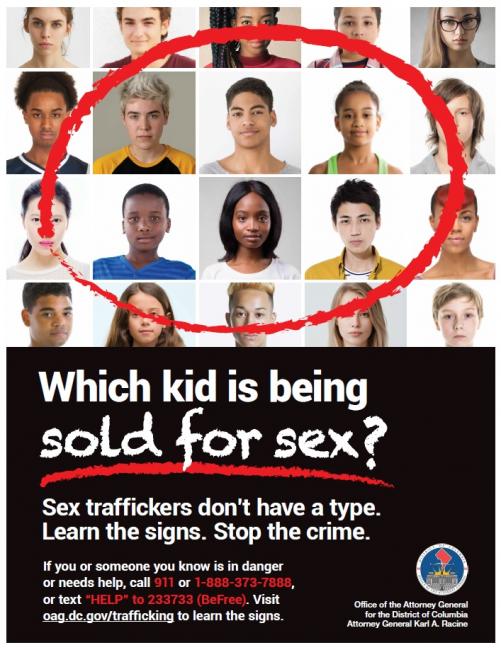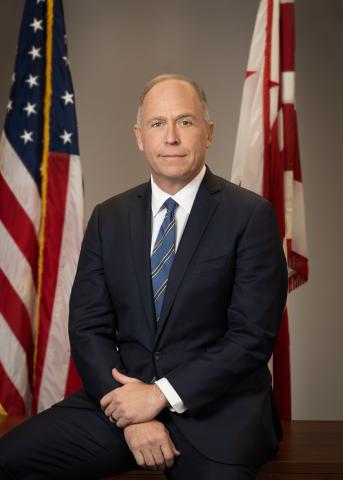Consumer Alert: Financial Exploitation
You hire a nurse to help your mother around the house. You expect the nurse to take care of your mother’s health and to watch over her home. After a few months, however, you notice that the power company has shut off your mother’s power, and you discover large withdrawals from your mother’s savings account. If this sounds familiar, you or someone you know may be a victim of financial exploitation. Far too often, trusted individuals use a position of power to take advantage of vulnerable adults for personal gain. Every year, many people are financially exploited by strangers, caregivers, friends, and sometimes even family members. Fortunately, there are several steps you can take to learn the warning signs of financial exploitation and prevent yourself, or someone you know, from becoming a victim.
What is financial exploitation?
Financial exploitation occurs when a person misuses or takes the assets of a vulnerable adult for his or her own personal gain. Financial exploitation often occurs to senior or disabled adults and deprives them of financial resources vital for their personal needs.
What are some of the warning signs of financial exploitation?
1) Unusual banking or credit card activity, or sudden changes in account balances or information:
- Bank statement shows large purchases or ATM withdrawals that are uncharacteristic of prior spending habits.
- Multiple checks made out to “Cash.”
- Credit cards are used more frequently or for much larger purchases than usual.
- Accounts have recently had their passwords changed or new persons were recently allowed access to an account.
2) Unusual interactions with a caregiver:
- A caregiver shows an excessive interest in a loved one’s finances or suddenly begins conducting financial transactions on their behalf.
- A caregiver does not allow financial institutions to speak directly with the persons they are caring for.
- A caregiver begins providing substandard care or services that you did not request.
3) Suspicious changes in personal documents, such as wills or powers of attorney:
- After years of staying the same, your friend or loved one amends his or her will in favor of one individual.
- A friend or loved one signs a Power of Attorney document you did not know about, giving excessive authority over his or her finances or health decisions to someone else.
4) Sudden appearance of previously uninvolved relatives or new friends:
- A new friend or distant relative who has previously been uninvolved—but who suddenly takes great interest in a loved one—can be a sign of exploitation. Remember, financial exploitation is not limited to strangers.
5) Unpaid bills:
- Bills begin piling up even though a caregiver is supposed to be paying them.
- Termination of services, such as utilities or cable TV.
6) Indications of other abuse:
- Changes in behavior or appearance that may be the result of physical abuse, emotional abuse, or neglect.
- Forged signatures on documents you have never seen.
- Missing valuables or assets.
How do I avoid becoming the victim of financial exploitation or seeing a loved one fall victim?
The most important thing to remember is to remain knowledgeable and vigilant:
1) Be familiar with common scams in the District of Columbia.
- OAG’s Office of Consumer Protection and other D.C. agencies, such as the Metropolitan Police Department, regularly report on common scams, including: Telemarketing, Charity, Identity Theft, Prize and Sweepstakes, and Relative in Distress Scams.
- USA.gov is a federal resource that provides additional information on scams, including: Census Related Fraud, Charity Scams, Financial Fraud, Lottery and Sweepstakes Scams, Pyramid Schemes, Tax-Related Identity Theft, and other Telephone Scams.
- The Federal Trade Commission’s Pass It On website has tips on starting conversations about financial exploitation and to read about past victims’ experiences at http://ftc.gov/passiton.
2) Most importantly, if you suspect financial exploitation of an adult you know, report it to the District of Columbia Adult Protective Services at (202) 541-3950.
3) Make sure you trust the people with access to personal information, money, or care.
- Have a discussion with your trusted family members about your long-term care. Make sure to discuss compensation and the scope of services to be provided.
- Conduct a background check on the people you hire to be a caregiver.
- Regularly talk to your loved one about their personal and financial well-being.
4) Consider providing a trusted relative or friend with a Power of Attorney.
- You may want to consider having yourself or a trusted relative appointed as a Power of Attorney, which is a written authorization to represent or act on another’s behalf in private affairs, business, or some other legal matter.
- Someone with Power of Attorney can help monitor a person’s well-being and prevent financial abuse.
- A Power of Attorney form can be purchased at most office supply stores or may be available for free from a retirement home or your bank or other financial institution.
5) Know that you are not alone.
What should I do if I or a loved one may be a victim of financial exploitation?
1) File a complaint with the District of Columbia Attorney General’s Office of Consumer Protection by calling our hotline at (202) 442-9828, by emailing consumer.protection@dc.gov, or by regular mail at:
Office of Consumer Protection
Office of the Attorney General
441 4th Street NW
Washington, DC 20001
2) Report allegations of exploitation to the D.C. Adult Protective Services by calling the Adult Protective Services Hotline at (202) 541-3950, available 24 hours 7 days a week, or by visiting the Adult Protective Services Office between the hours of 8:45 a.m. to 4:45 p.m. at:
Adult Protective Services
64 New York Avenue NE, 4th Floor
Washington, DC 20002
3) File a police report with the Metropolitan Police Department by calling the police at (202) 265-9100 or by visiting an MPD district station. Your report will then be sent to the MPD Financial and Cyber Crimes Unit for further investigation.
- You can locate your nearest MPD district station http://mpdc.dc.gov/page/police-districts-and-police-service-areas.
- For more information, you can contact the Financial and Cyber Crimes Unit by calling (202) 727-4159.
4) If you fear that your financial exploitation is a result of Identity Theft, you can go to the following links for more information concerning how to report it and create a recovery plan:
- The Office of Attorney General’s Consumer Alert concerning Identity Theft at www.oag.dc.gov/ConsumerProtection.
- FTC’s website at https://IdentityTheft.gov.
Below you'll find links to PDF versions of this information in English and Spanish:



